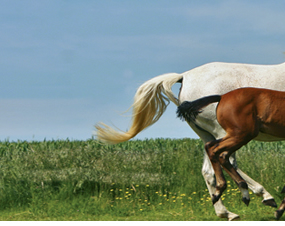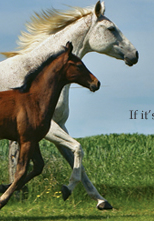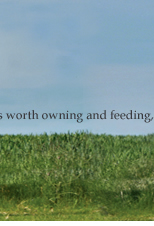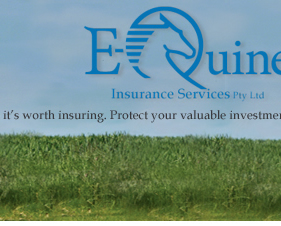



    |
  
|
You are here: Home » Insurance » Thoroughbred & Standardbred Horses » Reasons to Insure Reasons to Insure & What is InsuredReasons to Insure Your Horse Most people insure their assets. Some do so for commercial reasons, others for sentimentality. In today’s world of ever escalating bloodstock values, for some insurance has become an automatic or instinctive decision,an investment in protecting an investment. It is part and parcel of thedecision makingprocess associated with the purchase of a horse. In fact, more and more people are making prior insurance arrangements ahead of purchase, so that their acquisition is immediately covered the moment risk passes from the seller to the purchaser.If it's worth owning, feeding and maintaining, it surely has to be worth insuring! You wouldn't consider purchasing a house and leaving it uninsured. Similarly it is unlikely that you would drive your new car without adequate insurance cover. Your car is insured against accident and theft. Horses on the other hand, are also susceptible to other unfortunate and unforeseen happenings, such as illness and disease and, in the case of stallions, infertility, and for mares, loss of foetus or inability to conceive. Clearly, the risks associated with horses are greater than for other types of insurance. Given the athletic function of horses, it is inevitable that the incidence oflosses is high. There are no guarantees that the very best care and attention, with the best stud,equestrian centre or racehorse trainer, will prevent accidents or illness thatresult in death, whetherby natural causes or humane destruction. The purpose of insurance is to indemnify you i.e. to put you in the same financial position as you were before the loss. By protecting your investment with a customised insurance policy, you are ensuring that you have funds availableto replace your horse. Premium funding is available should you wish to spread your premium payments over many months. What is your horse insured for under a standard bloodstock mortality policy? Your horse is insured against death from natural causes (illness or disease) and accidents and injuries, as well as destruction on humane grounds if certified by a qualified veterinary practitioner to relieve incurable and excessive pain and suffering. Your horse is not insured against loss of use, permanent incapacity, loss of athletic function, incapable of carrying out the use for which it is insured or sale unsuitability, unless it dies or is euthanased on humane grounds as noted above. At the time of inception of insurance cover, your horse must be confirmed to be sound, in good health and free of any infectious or contagious diseases. A veterinary certificate or declaration of good health must be issued to this effect. One exception is insurance cover that incepts from “fall of hammer” at a recognised auction sale, which does not require a veterinary certificate or declaration of health, cover generally being automatic unless there are obvious problems or pre-existing conditions. Pre-existing conditions that are potentially life threatening are excluded from cover or may be accepted with the insurers consent, normally subject to the charge of an additional premium. The policy responds to a claim if your horse dies or is euthanased during the period of the policy. However, if prior to the expiry of the policy, your horse develops a life threatening condition that is unresolved or still prevalent at expiry date, and provided that condition has been notified to your insurer prior to the expiry date, then the policy shall continue beyond expiry for that particular condition only. The period of continuation is known as the extension clause, the standard being 30 or 90 days. There is the option for you to purchase a 12 months extension clause when you place the initial insurance cover. Although it attracts a small additional premium, it is recommended. It is important to realise that the extension period covers only the reported life threatening condition. To protect yourself with comprehensive cover in respect of all other conditions that may arise, it is necessary for you to renew the insurance, usually for a period of 12 months. You may ask what happens if the life threatening condition remains unresolved at the conclusion of the extension period? Legally, the insurers are not obliged to grant you a further period of extension. However, experience is that insurers are inclined to take the moral ground and not the strict legal position, and further extend the extension period by mutual agreement. Your broker should be able to assist and “bat” for you in this instance. The indemnity given to you under the standard bloodstock mortality policy is the stated sum insured, or fair market value if less at the time of a loss. The stated sum insured is not fixed or agreed unless the insurer has consented to the agreed value extension by endorsement. In circumstances where the agreed value clause is applied, the insurer may still stipulate that the value is subject to review at various stages during the policy. In the event of a claim, justification of fair market value vests in you, as owner. Specialist bloodstock insurance brokers are best qualified to advise you on the fair market value. What the standard bloodstock mortality policy will not pay?
Your responsibilities To ensure that your insurance policy responds in the event of a claim, it is important that you remain mindful of your ongoing responsibilities as a party to the contract of insurance. Failure to act in accordance with the policy conditions will invalidate your policy and leave you exposed to loss. Notify your placing broker immediately in the event that:
Any summary or general outline of policy coverage is not a substitute for the policy terms and conditions as contained in the policy document. It is important that you read and familiarise yourself with the policy wording. |
|
| E-Quine Insurance Services @ 2020 | |